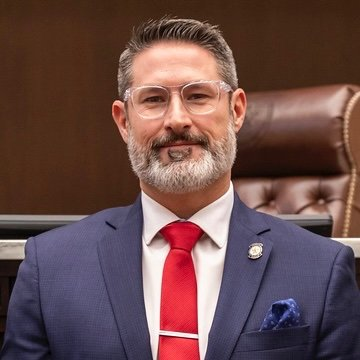I applaud President Trump for moving away from taxpayer-funded IVF. But it's time for evangelical Christians to get this issue right.
On August 5, The Washington Post reported that President Trump has decided to back away from his plans “to require health insurers to provide coverage for in vitro fertilization services.” This is fantastic news for unborn children and all Americans, and I thank President Trump for the decision.
During the campaign and over the past few months in office, the President has floated making IVF government-funded or an “essential health benefit,” which would require health insurance companies to cover it. One path would raise taxes on Americans, and the other would force insurance providers to spread the cost across all policyholders, driving up everybody’s premiums. In either case, the plan would siphon money away from people who want nothing to do with IVF, many of whom reject it on moral grounds.
Previously, even among those who understood IVF to be immoral and unethical, only the particularly bold were willing to take a public stand against it. Following Trump’s Executive Order to “Expand Access to In Vitro Fertilization (IVF)” on February 18, 2025, the situation appears to have changed.
Not only did the usual suspects (such as abortion abolitionists) raise their concerns, but they were also joined by influential conservative commentators such as Albert Mohler, Michael Knowles, Matt Walsh, and Allie Beth Stuckey, who sprang to oppose the idea.
The result was perhaps the most widespread education on this issue ever to transpire.
In addition to being economically unviable, the plan raised enormous moral problems. As former Congressman Matt Rosendale pointed out, IVF results in more dead preborn children than does Planned Parenthood. Data varies significantly depending on the source of the research, but most estimates place the survival rate for embryos created through IVF at around one-in-twenty. A 2023 study in the National Library of Medicine places the survival rate (that is, embryos created through IVF who make it to live birth) at only 4.96 percent.
How Does IVF Work?
The grief of infertility can be severe. We must offer heartfelt pastoral care to those suffering. Still, we must nonetheless soberly analyze the morality of the IVF process and lovingly guide people toward more ethical and holistic reproductive medicine.
IVF begins with the collection of sperm and eggs. For the man, this often involves pornography and masturbation in a designated room of the “clinic.” For the woman, it requires hormone shots to stimulate the ovaries, followed by egg collection surgery. Then, in a lab, scientists fertilize eggs via intracytoplasmic sperm injection (ICSI, used 90% of the time) or standard insemination, often creating 20-to-30 embryos at a time.
The newly created embryos are cultured for 5-6 days, then graded on cell number, fragmentation, and symmetry, and tested for chromosomal abnormalities; low-grade or abnormal ones are discarded (i.e., murdered). (The existence of low-grade embryos and the generally low survival rate for IVF is the reason why so many are created.) Most clinics recommend a “freeze-all” cycle, cryopreserving embryos via vitrification for later frozen embryo transfer (FET). Then, an embryo or multiple embryos are transferred to the mother’s uterus. Because of the lower survival rates of children created through IVF, many clinics transfer more embryos than the parents desire to birth and then follow up with “selective reduction” abortions if too many successfully implant.
The untransferred embryos are discarded (again, read: murdered), donated to scientific research where they will be tested on and murdered, or cryogenically stored indefinitely, awaiting experimentation or “snowflake” adoption.
For every child born through IVF, 19 others die in one of these ways.
Sadly, many Christians don’t know these facts. I believe that if they did, they wouldn’t support IVF. That’s why I wrote a book on the topic, Loving Your IVF Neighbor: In Vitro Fertilization, Assisted Reproduction Technologies, and Loving Your Neighbor as Yourself, which you can order here.
A Victory for Life and a Warning for Christians
Trump’s decision is a huge win for social conservatives and the sanctity of life. It shows that when Christians stand firm and speak up, we can influence Republican leaders at the highest level, even in cases like this, when we are in the minority on an issue. Evangelicals are arguably the most substantial voter bloc in the Republican base. Accordingly, Republican leaders have to listen to us, and we are derelict in our duty if we fail to influence the GOP.
We get the leaders we deserve. In a democratic Republic, you cannot expect political leaders to respond to your concerns if you do not provide them with actionable demands that require a response. You cannot expect Christian morality from leaders who do not hear from the Church. Christians must serve to train the moral conscience of the civil realm, especially when we have leaders who demonstrate responsiveness to us.
But this ordeal is also a reminder that we must be vigilant. That a Republican president felt comfortable floating the idea of taxpayer-funded IVF treatments reveals just how much education and discipleship is left to be done on this issue.
While I appreciate the resolution passed by Southern Baptists in 2024, “On the Ethical Realities of Reproductive Technologies and the Dignity of the Human Embryo,” unfortunately, evangelical Christians, and even Southern Baptists, continue to lag behind Catholic social teaching on the unethical nature of pursuing procreation via IVF. I agree with Andrew Walker, professor of ethics at SBTS, when he proclaimed that “Southern Baptists can no longer remain silent or on the fence about IVF.
To be clear, IVF is not a morally neutral medical procedure; it is a practice that normalizes the destruction of human beings for the sake of convenience, preference, and profit. This is no time for seeker sensitivity. It is time for moral clarity. The attractional model of ministry has left much of the Church entirely inept to address the ethical conundrums we face.
The Scriptures address the significant moral issues of our day. It is prime time for the Church to be salt and light, influencing political leaders and equipping members through preaching and discipleship to engage faithfully and impactfully in an age of ethical chaos, resulting from, in this case, rapid technological advances that have outpaced moral consideration from many Christians.
Ethical assessment must lead technological advancement, not the other way around.
Again, I am thankful that President Trump has chosen to put this proposal on ice for now; praise God, that was the righteous thing to do! But as people who uphold and defend the sanctity of all human life, Christians must lead these discussions. No matter how unpopular it might currently be, we cannot shrink back from raising the alarm about IVF.
Nothing less than countless preborn lives are at stake.
Share This Story

